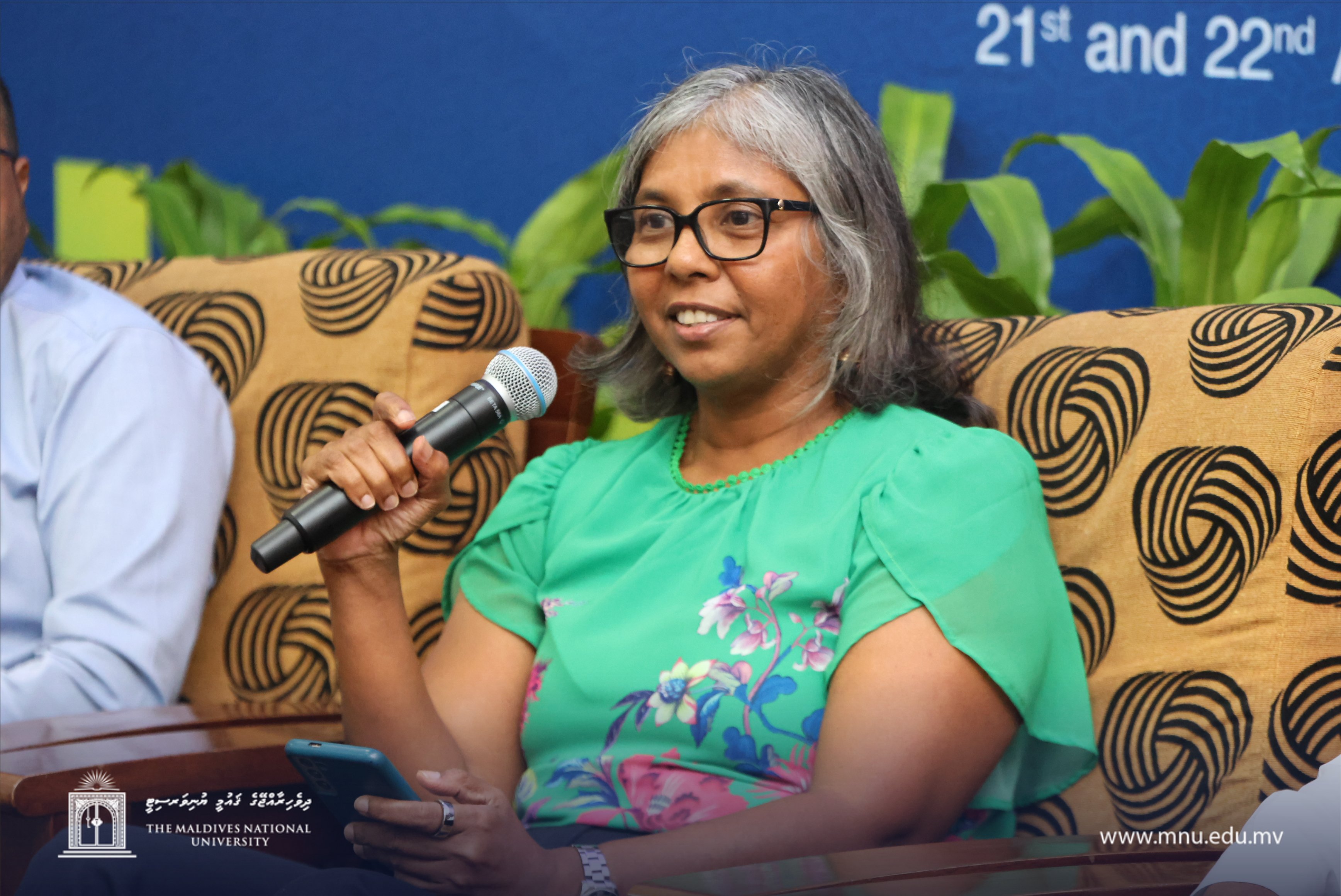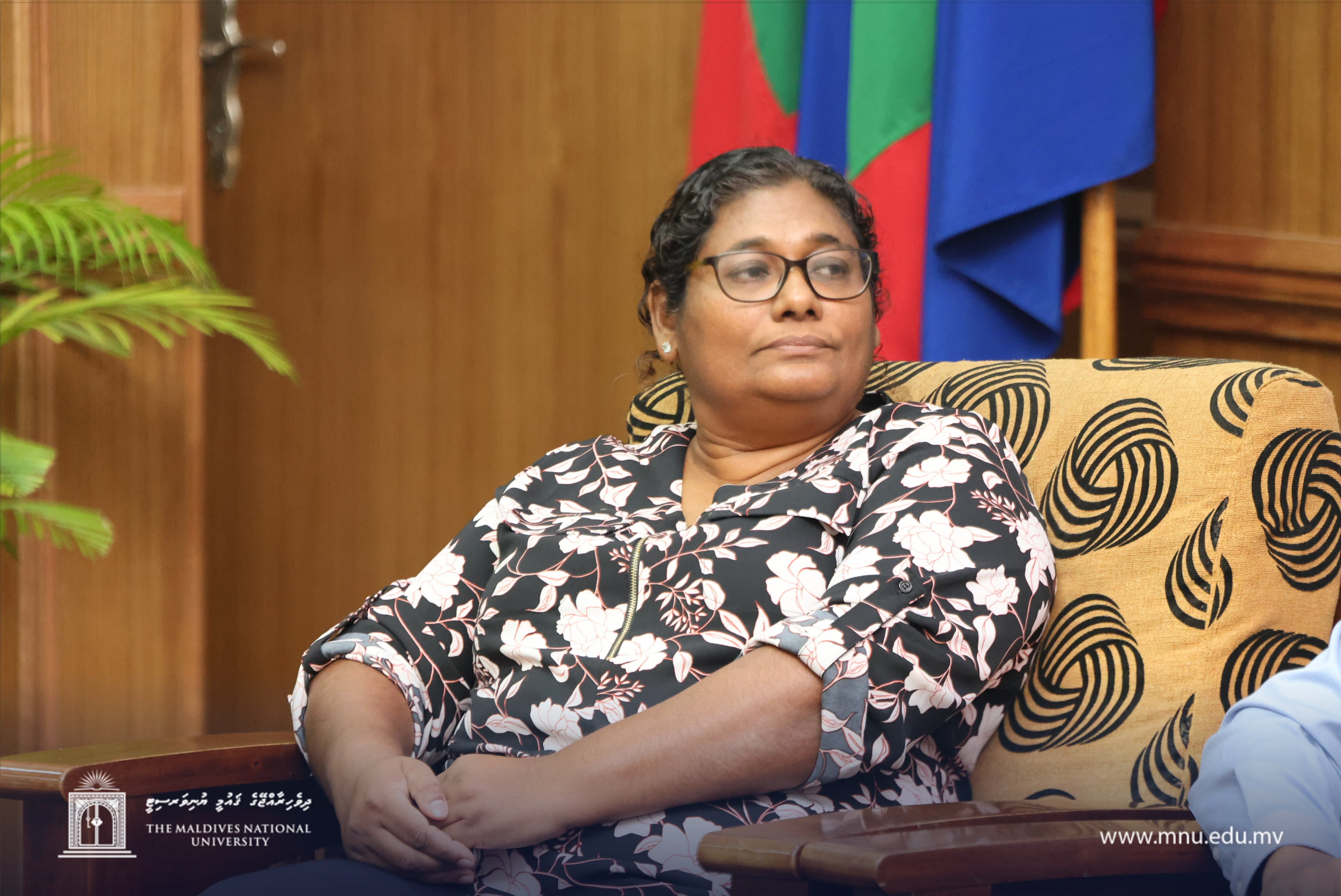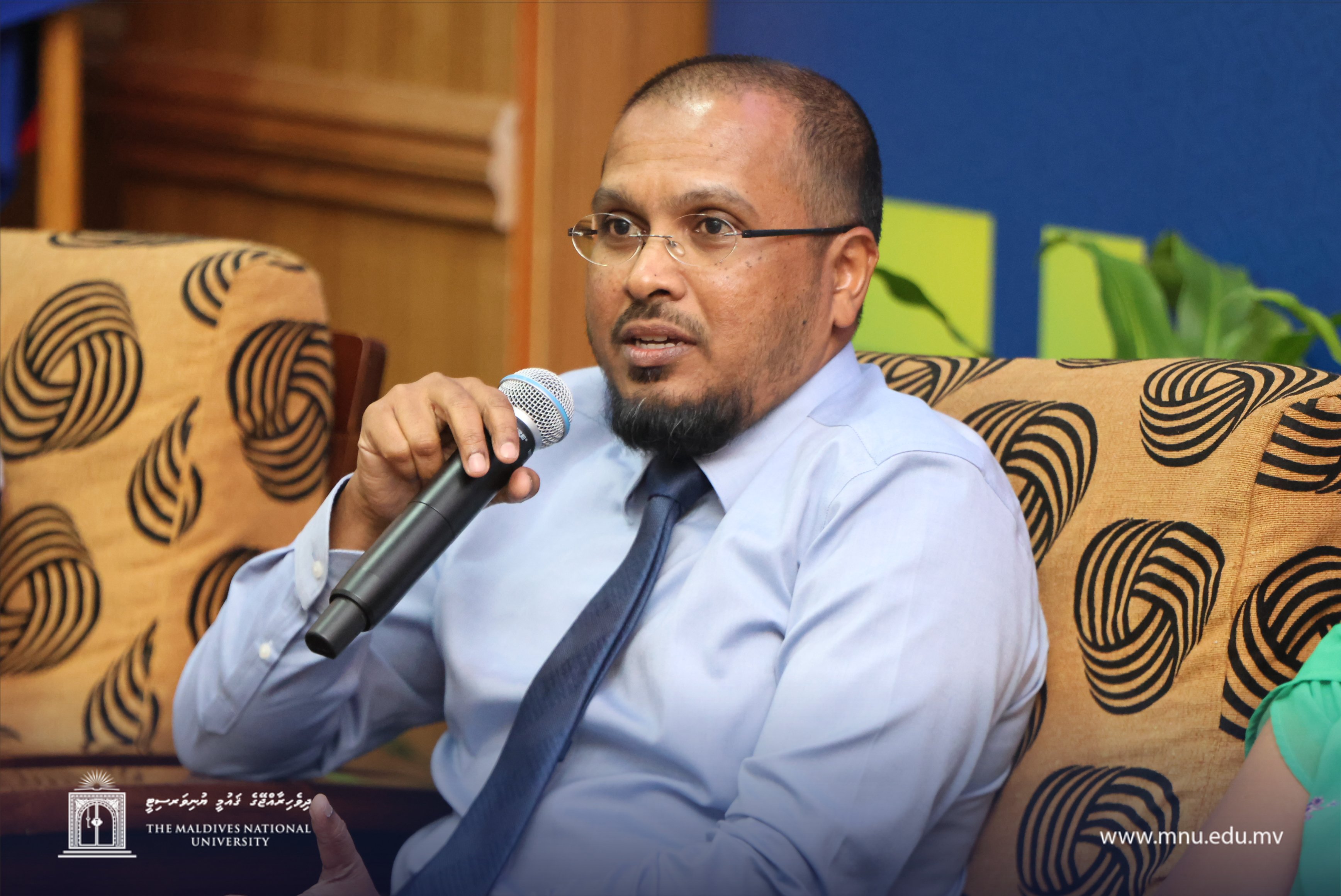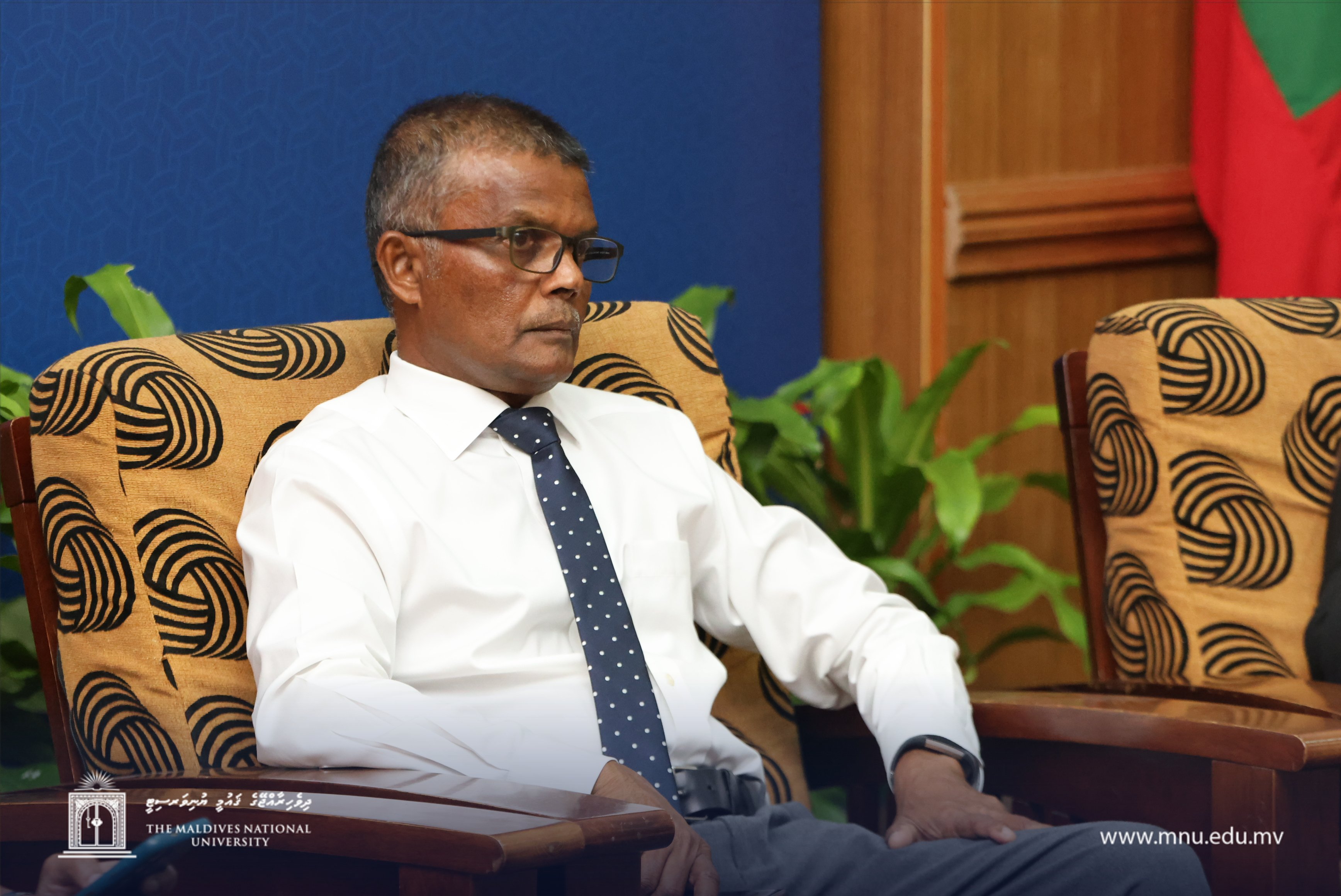Video
In the Year 2050, Who Works Where?
The Maldives stands at a crossroads, not just geographically as a collection of islands dotting the Indian Ocean, but demographically, as its population grows older and its workforce composition changes. During the recent panel discussion at ‘Theveli 2023 International Conference’ on the topic "In the Year 2050, Who Works Where?" led by notable figures from diverse sectors, delved deep into the future of work and the economy in 2050, exploring both challenges and opportunities.
Moderator Shadiya Ibrahim, Head of Office of the UNFPA Maldives Country Office, kicked off the discourse with a call for introspection. The results of the recent 2022 Census paint a sobering picture of stagnant population growth, raising concerns over future economic contributors. A particular focus was on the migration patterns within the Maldives, as an overwhelming 41% percentage of the population now resides in Greater Male'.

© MNU
Diving into the data, Deputy Chief Statistician of the Maldives Bureau of Statistics, Ms. Aishath Shahudha shared that, out of the 515,132 strong population recorded in 2022, a significant 132,493 comprises of foreign migrant workers. These individuals play an indispensable role in driving the Maldivian economy. But the challenge ahead? Balancing urbanization and the present population distribution, and capitalizing on the current youth bulge. As Ms. Shahudha noted, this demographic dividend won't last forever. Therefore, investments in youth development and women's labor force participation are not just important—they're urgent.

© MNU
However, the narrative isn't merely local; it's also influenced by global shifts. Dr. Ahmed Inaz, Chairperson of the Pension Office, pointed to technological advancements and the changing dynamics of foreign labor. By 2050, external economic shifts might cause foreign workers, who have significantly supported the Maldives' economy, to look elsewhere for opportunities. Dr. Inaz’s vision for the future is proactive, emphasizing adaptability and well-informed policymaking, alongside truly understanding the aspirations of the younger generation.

© MNU
On the topic of global trends, Dr. Hussain Niyaaz, Secretary of Economic and Development Cooperation of the Ministry of Foreign Affairs, offered a broader perspective. While the Maldives experiences a declining fertility rate, it's part of a global pattern. Yet, Dr. Niyaaz argues, it's essential to view the low fertility rate not just as a demographic challenge, but as a socio-economic opportunity. By prioritizing education, healthcare,fostering a positive outlook for the youth, and providing family-friendly workplaces, the Maldives can shape a future where its citizens see endless possibilities.

© MNU
Last but by no means least, Ms. Sujatha Haleem, CEO of the Pension Office, emphasizes the 'care economy.' As the ageing population of the Maldives expands, the demands for elder care will spike. Alongside this, the need for robust childcare facilities is paramount to ensure women remain active contributors to the labor force. Ms. Sujatha’s insights underscore the urgency for sustainability in policies, especially within the spheres of social security and savings.

© MNU
All panelists converge on a singular sentiment:
"Preparation today determines the state of the year 2050."
Whether it's the need for comprehensive policies, capitalizing on the demographic dividend, or preparing for the global shifts, one thing is evident — proactivity is the Maldives' best ally.
This journey towards 2050 won't be without its bumps, but as the panel discussion highlighted, the Maldives, armed with foresight and determination, is well-equipped to navigate this changing landscape.

